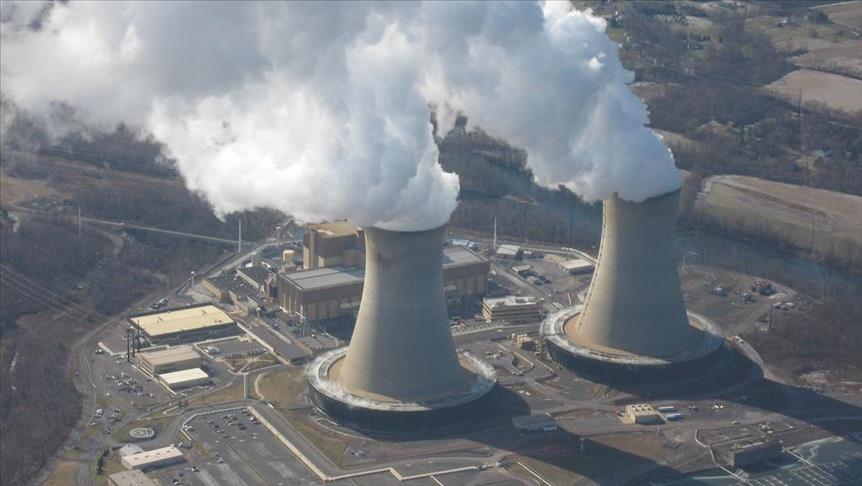
Ankara
By Hassan Isilow
JOHANNESBURG, South Africa
The program to build nine nuclear plants across South Africa has raised a storm of controversy, as environmentalists object to the dangers, and economists decry the costs.
“Greenpeace strongly condemns the move to push ahead with procuring new nuclear reactors, which the country can ill afford, and doesn't need,” Anand Prabu Pathanjali Climate & Energy campaigner at Greenpeace Africa told Anadolu Agency in interview on Wednesday.
Tristen Taylor, project coordinator of environmental organization Earth Life Africa told Anadolu Agency in an interview on Wednesday that nuclear energy is not the best choice for the country.
“Nuclear energy is expensive, risky, produces waste we don't know how to deal with, and creates relatively few jobs,’’ he said.
South Africa’s cabinet announced on Dec. 21 the approval of the start of a nuclear procurement program which will see the construction of nine nuclear power plants that would generate 9,600 megawatts of power by 2030. The procurement process was started on the same day.
The government has yet not revealed the exact cost of the project but the project might cost between $37 to $100 billon, according to a study published in 2013 by the University of Cape Town’s Energy Research Center.
The study determined that nuclear plants weren’t needed and wouldn’t be cost-effective for 15 to 25 years, based on the projected cost.
A number of countries including Russia are expected to compete for the main contract to build the plants.
But Taylor said that South Africa should have considered other sources before starting the nuclear energy procurement plan.
“We haven't even begun to significantly tap South Africa's potential. 'Baseload Concentrated Solar Power Generation' is an obvious way of the future for South Africa, and would be cheaper than nuclear in the next couple of years,’’ Taylor pointed out.
Concentrated solar power systems generate electricity by using mirrors or lenses to concentrate a large area of sunlight onto a small area, and converting the light to heat.
South Africa currently has two nuclear reactors at the power station situated at Koeberg near Cape Town. The Koeberg nuclear power station is owned and operated by South Africa’s only national electricity supplier Eskom. Koeberg produces about 1,800 megawatts, and accounts for about 5 percent of the country’s total electricity production.
But the country largely depends on coal-powered stations, and has been struggling with power cuts, which have affected its economic growth.
The government says it opted for nuclear energy in a bid to diversify the country’s energy sources.
Green Peace’s Pathanjali said that the nuclear project will not come close to solving South Africa's electricity crisis, since it will take 10 to 15 years to build new nuclear reactors, while the country needs electricity immediately.
“Combine this timeframe and the exorbitant cost of nuclear, and it is clear that nuclear is actually a Trojan horse, which will bankrupt this country, and send us into yet another crisis” he asserted.
Some South African opposition parties have also condemned their government’s decision to go ahead with the nuclear program.
“The Economic Freedom Fighters rejects the government’s decision to proceed with the nuclear build program regardless of how much it will cost,” the opposition party said in a statement on Dec. 24.
Anadolu Agency website contains only a portion of the news stories offered to subscribers in the AA News Broadcasting System (HAS), and in summarized form. Please contact us for subscription options.





